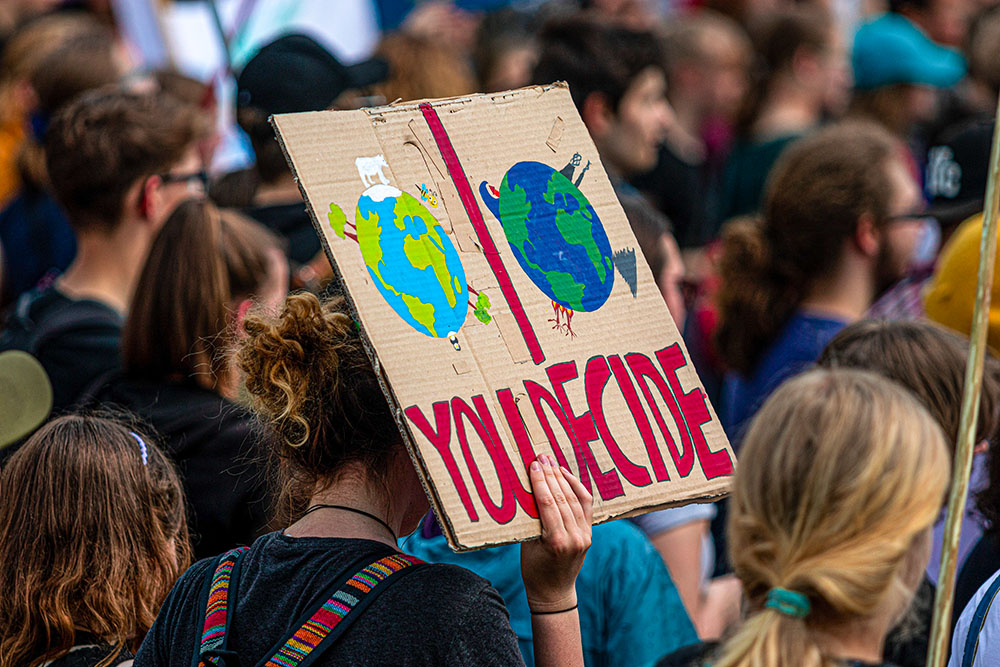
(Pixabay/dmncwndrich)
With another election season fast approaching, I am again assessing candidates based not only on their qualifications for office but also on their commitment to protecting God's creation. As someone who is pro-life, I chose to vote for those who support action to address the greatest threat to all life, human or otherwise: climate change.
This underprioritized crisis has become politicized, particularly in the United States, where a person who considers climate change a moral priority doesn't typically qualify as pro-life. But protecting the sanctity of human life necessarily requires protecting the environment that sustains it. This also requires electing leaders who acknowledge the climate crisis and who are committed to solving it, rather than dismissing it as part of some "liberal agenda" or even as a "hoax."
Some Catholic voters assess candidates based solely on their positions on abortion, rather than on other moral issues like capital punishment or even on upholding the Constitution. Others are conflicted over choosing between candidates who oppose abortion access and those who are pro-choice in terms of abortion yet support other issues of human life and dignity.
However, this apparent moral dilemma ignores basic Catholic teaching. It's worth considering from an alternative angle how Catholics and other voters of faith can discern who is best qualified for public office.
The Holy See, as well as bishops worldwide, recognizes that human-caused climate change unjustly impacts the poor and most vulnerable who have contributed least to the problem.
Advertisement
Pope Benedict XVI stated in his letter to the ecumenical patriarch of Constantinople, "Preservation of the environment, promotion of sustainable development and particular attention to climate change are matters of grave concern for the entire human family." In his encyclical Laudato Si', Pope Francis equates our abuse of the environment to sin.
The U.S. bishops themselves state in "Forming Consciences for Faithful Citizenship": "We have a moral obligation to protect the planet on which we live — to respect God's creation and to ensure a safe and hospitable environment for human beings, especially children at their most vulnerable stages of development. ... Our Conference offers a distinctive call to seriously address global climate change" (emphasis theirs).
According to St. Thomas Aquinas' principle of double effect, a decision with a morally sound outcome is permissible even if it results in another unintended outcome that is immoral. Further, in a not-so-well-known section of their "Forming Consciences for Faithful Citizenship" voting guide, the U.S. bishops explain, "There may be times when a Catholic who rejects a candidate's unacceptable position even on policies promoting an intrinsically evil act may reasonably decide to vote for that candidate for other morally grave reasons."
Therefore, even if a Catholic opposes abortion, choosing a candidate who supports climate action is acceptable since climate change is a grave moral issue, not a partisan one.
Since my faith and my church tell me that destroying God's creation is a morally grave sin, I can in good conscience vote for candidates whose policies protect the environment. These include taking actions to mitigate climate change that is already killing millions worldwide from drought, flooding, famine and disease. So for me, choosing candidates, regardless of party affiliation, who support climate action is a pro-life vote.
This election season, pro-life voters who are conflicted over candidates can make it easy on themselves by voting pro-creation. They can support candidates who recognize the grave moral issue of human-caused climate change and the value of taking climate action — to help save millions of lives, born and unborn, now and in the future.




